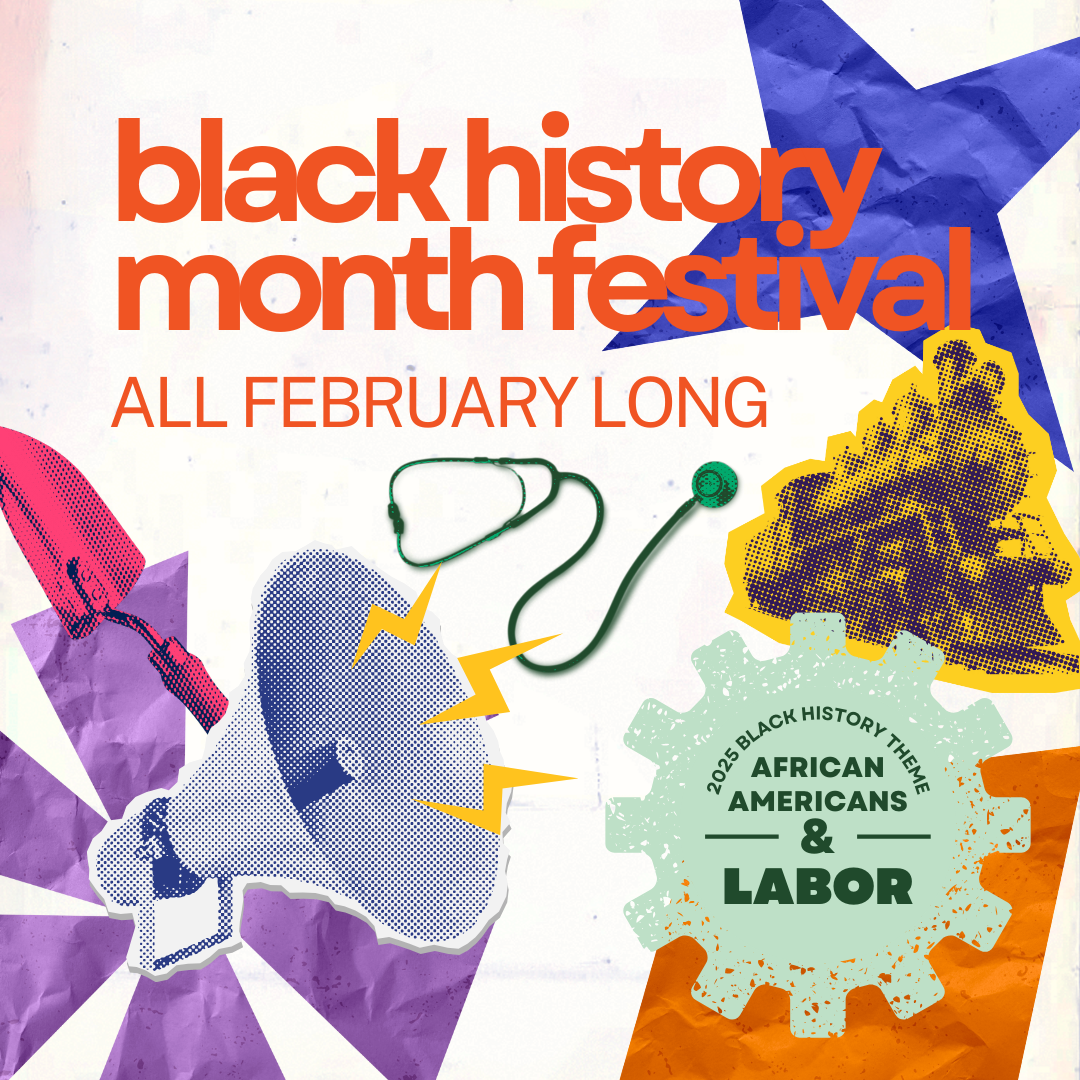The 2025 Black History Month theme is exciting and wide-sweeping! This theme “focuses on the various and profound ways that work and working of all kinds — free and unfree, skilled, and unskilled, vocational and voluntary — intersect with the collective experiences of Black people.” The theme is particularly appropriate, since 2025 celebrates the centennial anniversary of the founding of the Brotherhood of Sleeping Car Porters and Maids by labor organizer and civil rights activist A. Philip Randolph. This organization was the first Black union to receive an American Federation of Labor charter.
Labor, of course, includes paid work in factories, the military, government agencies, office buildings, public service, private homes and more. But labor additionally recognizes the unpaid work of building social justice communities, expanding service to others, and developing institutions such as churches, community groups and social groups.
At Daniel Boone Regional Library we are fortunate to maintain a broad collection that highlights the contributions of Black people every day and especially during Black History Month. Here’s just a sampling of titles related specifically to labor:
- “Black Folk: The Roots of the Black Working Class
” by Blair LM Kelley covers two centuries, beginning with a blacksmith ancestor of the author, and features the lives of laundresses, Pullman porters, domestic maids and postal workers who established the Black working class as a force in the late 19th and early 20th centuries.
- “Workers on Arrival: Black Labor in the Making of America” by Joe William Trotter, Jr explores Black workers’ journey from the slave trade through the American Century to the decline of the industrial order in the 21st century.
- “No Right to An Honest Living: The Struggles of Boston’s Black Workers in the Civil War Era” by Jacqueline Jones discusses how before, during, and after the US Civil War, Boston’s white abolitionists focused primarily on the plight of enslaved Black southerners, while ignoring challenges faced by their Black neighbors.
- “Rising from the Rails: Pullman Porters and the Making of the Black Middle Class” by Larry Tye describes the complicated world of the Pullman porters and the important cultural, political and economic roles they played as developers of the modern Black middle class.
“Household Workers Unite: The Untold Story of African American Women Who Built a Movement” by Premilla Nadasen presents a unique perspective on the history of 20th-century domestic workers, sharing the stories of six African American activists who took great risks to improve the lives of their colleagues.
- “Twice as Hard: the Stories of Black Women Who Fought to Become Physicians, From the Civil War to the 21st Century” by Jasmine Brown offers the missing stories of nine pioneering Black women physicians beginning in 1860, when the first Black woman entered medical school.
- “All Labor Has Dignity” by Martin Luther King, Jr. contains Dr. King’s speeches on labor rights and economic justice.
“We Could Not Fail: The First African Americans in the Space Program” by Richard Paul features 10 pioneering African American space workers whose experiences show the role that NASA and the space program played in promoting civil rights.
- “Think Black: A Memoir” by Clyde W. Ford tells the story of IBM’s first Black software engineer, his revolutionary son, and the corporation that destroyed their relationship.
- “Chained in Silence: Black Women and Convict Labor in The New South” by Talitha L. LeFlouria maintains that the presence of African American women in Georgia’s convict lease and chain-gang systems helped to modernize the South by creating new skill sets for Black women.
This wide range of selections illustrates the key role that the history of Black labor has played in the overall history of US labor. Check out one of these informative titles to learn more, and visit our month-long display in the lobby of the Columbia Public Library.



